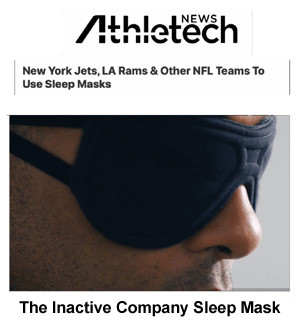
As Veterans Day and the holiday season approach, our focus often turns to gratitude and giving back. But one of the most meaningful gifts we can offer our nation’s veterans isn’t material—it’s rest! For millions who served, sleep isn’t a nightly escape but a nightly struggle. Research shows that veterans are four times more likely to experience sleep disorders like insomnia and sleep apnea than civilians.
This struggle has consequences well beyond just feeling tired. Poor sleep worsens physical health by increasing the risk of heart disease and diabetes and also seriously harms mental health. Veterans dealing with PTSD or traumatic brain injury often find that lack of sleep makes their problems worse, creating cycles of substance abuse, depression, and even suicide. Chronic insomnia can also increase the likelihood of developing PTSD, leaving undiagnosed veterans more vulnerable.
At a time of year meant for peace and renewal, too many veterans are left without either.
One-Size Doesn’t Fit All
The sleep medicine industry, valued at over $31 billion, offers a range of treatments, including CPAP machines, behavioral therapies, and prescription medications. However, these were not designed with veterans’ specific needs in mind. Many veterans are less likely to use non-medicated sleep aids, not because they don’t want help, but because these options often ignore the complexity of their experiences.
Instead of expecting veterans to adapt to treatments, it’s time treatments adapt to veterans.
Trauma-Informed Design Starts with Listening
In combat, hyper-vigilance helps you survive. At home, it hinders relaxation. Everyday triggers like sounds, temperature shifts, or the feeling of fabric on the skin can quickly change veterans from resting to fully alert. Standard interventions can sometimes worsen the situation. For instance, masks or straps pressing against the face might remind them of combat gear, reinforcing trauma rather than easing it.
Trying Something New
Better sleep solutions don’t always have to be high-tech. At The Inactive Company, we’ve listened to veterans’ feedback to create tools and training that make it easier to get rest.
Our Inactivators Performance Sleep Mask is one example. Instead of pressing against the face, it’s shaped to allow eyes to open while still blocking out light. A quick-release strap ensures it can be removed instantly in moments of stress. Temperature-regulating materials help reduce discomfort, removing small but significant barriers to consistent use.
A study conducted with the Emory Veterans Program confirmed this approach: nearly half of the participants wore the mask at least 70% of the time during an intensive program, and 16% saw a measurable decrease in insomnia severity.
Mission-Oriented Sleep Training
We also created the Sleep 7 Playbook, combining proven cognitive behavioral therapy for insomnia (CBT-I) with military-style training principles like structure, repetition, and gradual skill development. For many, adopting new habits is easier when the approach feels familiar.
The Bottom Line
As we honor veterans this November and enter the holiday season, let’s remember that rest is more than a luxury. It’s a lifeline! Veterans deserve solutions that are designed with empathy, understanding, and respect for their unique experiences. By rethinking how we approach sleep treatment, we can offer them more than just better nights — we can give them brighter days.
On November 11 and 12, veterans can get 30% off plus free shipping on the Inactivators when they use the code VETERAN30 at checkout.
PREVIOUS NEWS
NEXT NEWS